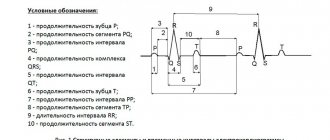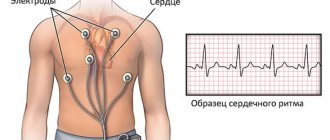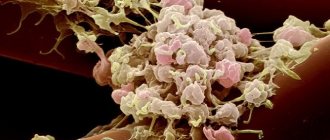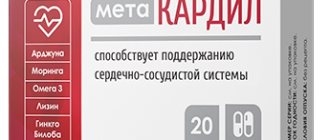| Author of the article: | |
| Sleptsov Ilya Valerievich, Doctor of Medical Sciences, endocrinologist surgeon, professor of the Department of Faculty Surgery of St. Petersburg State University, deputy director for medical affairs of the St. Petersburg Multidisciplinary Center of the Ministry of Health of the Russian Federation, member of the European Thyroidological Association, European Association of Endocrine Surgeons | |
| If you have been diagnosed with medullary thyroid cancer that requires surgical or chemotherapy treatment, or an increase in blood calcitonin levels, you can contact Ilya Valerievich Sleptsov by phone +7 921 9517088 to receive recommendations for diagnosis and treatment |
What is calcitonin
Calcitonin is a thyroid hormone, it is produced by C-cells located around the follicles (vesicles with the main hormones - thyroxine, triiodothyronine).
The role of calcitonin:
- takes part in the regulation of phosphorus-calcium metabolism in the body;
- stimulates the work of bone-building cells (osteoblasts) and inhibits destructive cells (osteoclasts);
- slows down the destruction of bone tissue;
- prevents a decrease in bone mineral density (osteoporosis).
The formation of calcitonin depends on the calcium content in the blood; the more calcium, the more hormone is produced. Thyroid tumors produce a lot of calcitonin, so it is considered as a tumor marker.
C-cells belong to the diffuse endocrine system, that is, they are not only in the thyroid gland, therefore increased formation of calcitonin also occurs in cancer of the blood, stomach, lungs, mammary, gonads, tumors of the pancreas and adrenal glands (pheochromocytoma).
Calcitonin is normal
When testing blood for calcitonin and assessing the results of this analysis, it should be remembered that there is no lower limit of normal for this hormone
. If its level in the blood is zero, this is also normal. It is important that it does not rise above those limits that are designated as the upper limit of normal for this particular analyzer and this particular set of reagents.
It doesn’t make much sense to indicate any specific norm for calcitonin here, since laboratories now use very diverse models of analyzers - this leads to the fact that the concept of norm in this case should not even be discussed. When you take a calcitonin test in a high-quality modern laboratory, the norm will be indicated on the same form - this rule is followed very strictly by good laboratories.
Indications for calcitonin testing
Calcitonin determination is carried out for symptoms:
- medullary thyroid carcinoma - nodes in the thyroid tissue, enlargement of the gland and lymph nodes;
- multiple tumors of the endocrine glands - detection of pheochromocytoma, medullary cancer and other neoplasms of the glands;
- osteoporosis: back pain, poor posture, fractures due to minor trauma;
- dysfunction of the parathyroid glands (hyperparathyroidism with bone destruction, increased blood calcium and the deposition of kidney stones, stomach ulcers or hypoparathyroidism with low calcium and convulsive syndrome).
When should you check your calcitonin levels?
Clinical recommendations for testing are the presence of nodules in the thyroid gland. According to statistics, out of 300 patients with nodules, only one is diagnosed with medullary carcinoma.
If there is confirmed cancer in the thyroid gland, a calcitonin test should be taken every 3-6 months.
It is also recommended to get tested if you have the following problems:
- Signs of osteoporosis are skeletal deformation, multiple fractures, bone pain. The analysis will assess calcium metabolism disorders.
- Hypoparathyroidism - if the level of parathyroid hormone decreases, the concentration of calcium also decreases, therefore, phosphates in the blood increase.
- Suspicion of multiple endocrine neoplasia syndrome - in this case, the analysis will help to exclude or confirm the presence of tumors of several glands and genetic autosomal dominant syndrome.
It is also recommended to check the concentration of calcitonin if there are symptoms of hidden pathological processes:
- constant fatigue and weakness;
- apathetic state;
- enlarged lymph nodes and growth of nodes in the thyroid gland;
- lethargy;
- weight loss for no reason;
- dryness and pallor of the skin;
- hair loss and brittle nails;
- loss of performance;
- memory impairment;
- discomfort in the thyroid gland.
An endocrinologist may prescribe a calcitonin test to a patient:
- if the development of neoplasms is suspected;
- impaired absorption of phosphorus and calcium;
- the size of nodules in the thyroid gland is more than 1 cm;
- osteoporosis;
- to assess the condition of the kidneys, stomach and mammary glands;
- monitoring the dynamics after tumor removal;
- prophylaxis in patients who are predisposed to medullary tumors.
Endocrinologists recommend taking a calcitonin test on a regular basis in conjunction with an annual preventive examination. The cost of the study is low, so including it on the list of required ones will not be difficult.
The dangers of high and low calcitonin
Elevated calcitonin indicates diseases:
- medullary thyroid cancer and other tumor diseases;
- renal failure;
- megaloblastic anemia due to vitamin B-12 deficiency;
- increased function of the parathyroid glands;
- alcoholic cirrhosis of the liver;
- inflammation of the thyroid gland.
Low calcitonin is normal; its decrease while taking prescribed medications or after surgery indicates the effectiveness of therapy.
When calcitonin is elevated
Any situation where a patient has high calcitonin, regardless of the degree of its increase compared to the norm, is very serious and requires an in-depth examination with the participation of specialists with sufficient experience in diagnosing and treating medullary thyroid cancer.
It is important to understand that if a calcitonin level is detected that exceeds 100 pg/ml, the probability of the patient having medullary cancer is almost 100%. The higher the level, the more advanced the tumor, the higher the likelihood of detecting its metastases in the lymph nodes and distant organs, and the worse the prognosis for the patient.
If in a patient with thyroid nodules, according to fine-needle biopsy, all nodes are benign, and calcitonin in the blood is elevated, you should trust the analysis more, since the likelihood that this indicator is “lying” is small. If the hormone level is really high (i.e., exceeds 100), surgical treatment including complete removal of the thyroid gland with central cervical lymph node dissection (i.e., removal of the lymph nodes surrounding the thyroid gland) must be carried out without fail. You can understand for yourself how accurate the calcitonin test must be - after all, in such cases, the patient’s thyroid gland is removed based on the results of only one laboratory test! The situation with the treatment of such tumors is similar to flying an airplane in fog using instruments, when you can’t see anything around, and decisions about where to fly have to be made only on the basis of instrument readings in the cockpit...
It is worth mentioning another important feature of medullary cancer - in 30% of cases it has a hereditary distribution, and can be inherited by the patient’s children in 50% of cases. In these situations, the thyroid gland is removed in children under 5-7 years of age (and in some cases, during the first month of life!), when the tumor is just beginning to develop, and the calcitonin level is barely elevated. And in this case, only an accurate test for calcitonin can add confidence to doctors and the child’s parents that they are doing everything correctly.
The most difficult cases in diagnosing medullary thyroid cancer are associated with situations where the hormone is only slightly elevated - that is, the level is above normal, but below the number 100. In cases where there is a slight increase, we can talk about the presence of medullary cancer of a very small size (3-4 mm), and about the absence of a tumor - in this case, calcitonin is increased due to other reasons not related to cancer.
Both in cases where calcitonin is clearly and clearly increased, and in cases of questionable, insignificant increase, you should contact a specialized endocrinology center, where specialists will conduct additional clarifying studies, including:
- fine-needle biopsy of nodes under ultrasound control with determination of the calcitonin level in the washout from the puncture needle;
- conducting a stimulated calcitonin test with intravenous administration of calcium gluconate.
In this article, we will not discuss all aspects of diagnosing medullary cancer, since it is wrong for patients to independently identify it - this is fraught with mistakes, the cost of which can be life. The rules that you need to remember after reading this material are simple:
- calcitonin is a tumor marker
, this is its main significance
; - A blood test for the hormone calcitonin must be taken in all patients with
thyroid nodules; - the analysis should be taken in a specialized laboratory
that uses 3rd generation immunochemiluminescent analyzers and has sufficient experience in diagnosing medullary cancer; - any increase in the level of calcitonin in the blood should be a reason to contact a specialized endocrinology center
.
How to prepare for analysis
To test for calcitonin, venous blood is needed.
Rules for preparing for the study:
- We recommend donating blood between 8 and 11 am;
- blood must be donated on an empty stomach, after an 8-12 hour overnight fast;
- on the eve of the study - a light dinner with limited intake of fatty foods;
- on the day of the test, you can drink still water and it is better to avoid coffee and tea;
- 24 hours before the test, exclude alcoholic beverages;
- 1 hour before the test it is better to refrain from smoking;
- 24 hours before the study, exclude the use of medications (in consultation with the attending physician);
- 24 hours before the test, eliminate emotional and physical stress;
- You should not donate blood after radiography, ultrasound, massage, endoscopic and physiotherapeutic procedures;
- It is recommended to rest for 10-20 minutes before donating blood.
Causes of low calcitonin levels
Doctors do not always interpret low hormone levels as a pathology, so even zero values in some cases are taken as normal.
A low level means the absence of cancer and inflammatory diseases, but can be observed with:
- leaching of calcium from bone tissue - osteoporosis;
- insufficient activity of the thyroid gland - cretinism;
- deficiency or decreased sensitivity of parathyroid hormones - hypoparathyroidism;
- impaired production of calcitriol in the kidneys - hypoparathyroidism;
- surgical removal of the thyroid gland, which leads to the cessation of hormone production - thyroidectomy.
If there is already a tumor, then a low calcitonin value indicates a positive dynamics of treatment or that the damaged tissue does not produce this hormone.
General definition
A blood test for hormones can reveal whether hormonal balance is disturbed. Today there is an increase in endocrine diseases caused by dysfunction of the endocrine glands. To prevent negative consequences by starting therapy in a timely manner, it is recommended to regularly check your hormonal levels. This can be done in our multidisciplinary medical. Highly qualified specialists who have the best diagnostic equipment at their disposal will help identify problems in the body’s functioning at the earliest stages.
General indicators, decoding
A complete picture of the state of the body and hormonal levels can be obtained by passing one of the following types of tests:
Thyroid hormones:
- Free T4 is one of the most important biologically active substances of the thyroid gland, which is responsible for transporting protein compounds and maintaining their optimal balance in the body. The normal plasma level for a healthy person is from 10 to 22 mmol/l. An excess indicates somatic or mental illnesses, lipemia. Deficiency - about pregnancy, poor nutrition, heavy physical activity, use of a number of medications.
- TSH – directly affects the thyroid gland and is responsible for the circulation of its components. The norm for an absolutely healthy person is from 0.4 to 4 mU/liter. An excess indicates adrenal insufficiency, complex non-thyroid pathology, etc. Low level – about thyrotoxicosis, cortisol imbalance, etc.
- T3 general - needed to stabilize the peripheral endocrine glands. The norm is 1.3 – 2.7 nmol/l. An excess of the hormone indicates pregnancy, taking drugs or estrogen. Disadvantage - about gastrointestinal pathology, acromegaly, hemolysis, starvation and other disorders.
- Total T4 is one of the main bioactive substances of the thyroid gland. Correct values are from 59 to 160 nmol/l. Going beyond these numbers to a greater extent can indicate obesity, the presence of hepatitis, pregnancy, etc., to a lesser extent - about starvation, excessive physical activity, kidney and gastrointestinal diseases.
- Free T3 – stimulates oxygen circulation in soft tissues. The normal range is from 2.6 to 5.6 pmol per liter. Exceeding the indicators indicates hyperthyroidism, toxicosis, a deficiency indicates peripheral vascular resistance syndrome, taking iodine-containing medications.
- Antithyroglobulin antibodies (AT-TG) help identify some autoimmune diseases. The normal value ranges from 0 to 4.11 U/ml.
- TSH is one of the main functional elements of the thyroid gland. The norm for a healthy person ranges from 258 to 574 nmol/liter. A higher reading may indicate pregnancy, hepatitis or hypoproteinemia.
Sex hormones:
- Estradiol is an active component in the blood of women, which is responsible for the maturation of germ cells and affects the proper development of the fetus during pregnancy. The norm varies depending on the life cycle: from 200 to 286 pm/l (for women in the follicular phase), from 52 to 136 pm/l (for women during menopause) and from 441 to 576 (girls in the luteal phase). An excess indicates possible tumors on the ovaries, a deficiency indicates a failure in the release of gonadotropic hormones.
- Testosterone - directly affects the growth of muscle mass, strengthening bones, and the formation of sexual characteristics. Indicators range from 2 to 10 ng/ml in men and from 0.2 to 1 in women
- Progesterone appears in the body after the formation of the egg. The pregnancy hormone, as it is also called, is responsible for the stability of the development of the intrauterine fetus. The norm is from 22 to 30 nm/l in the luteal phase, 1 – 2.3 nm/l in the follicular phase, 1 – 1.8 during menopause. If the value is higher than normal, then this may indicate pathological processes in the adrenal cortex, if less, it may indicate ovarian sclerosis.
Pituitary hormones:
- ACTH is responsible for the release of bioactive substances in the adrenal cortex. Correct values are up to 50 pg/ml. If more, hyperplasia is possible, less - adrenal insufficiency, tumor.
- Prolactin is responsible for stimulating lactation in women and the functioning of the prostate in representatives of the stronger half. For the latter, the norm is from 100 to 266 µg/l, for women of childbearing age from 129 to 539 µg/l, for women in menopause – from 106 to 289 µg/l.
- Growth hormone is responsible for the development of bone and muscle mass and other important organs. The norm is up to 10 ng/ml. Elevated levels indicate acromegaly or gigantism, while low values indicate pituitary dwarfism.
- LH – ensures the complete maturation of the egg in women and sperm in men. The norm for guys is from 2.12 to 4 mIU/ml, for girls, depending on the menstrual cycle, from 1.55 to 53 mIU/ml. Deviation in one direction or another is a sign of various dysfunctions of the gonads.
Adrenal hormones:
- Adrenaline and norepinephrine are responsible for the rhythm of the heart muscle, pressure, blood vessels, motility, and form glucose levels. Correct values are from 1.9 to 2.45 nm/l and from 0.6 to 3.22, respectively. An excess indicates jaundice, renal pathologies, a deficiency indicates myasthenia gravis or damage to the hypothalamus.
- Cortisol – responsible for susceptibility to allergic reactions, systematizes the production of antibodies. The norm is from 229 to 749 nm/l. If the readings are lower, there is a possibility of Addison's disease or adrenal disease; exceeding the norm indicates an adenoma or cancer.
- Aldosterone is an important hormone responsible for the balance of water and salt. The correct value ranges from 30 to 172 pg/ml. Deficiency is a sign of thrombosis, poor nutrition, arterial embolism. An excess may indicate a tumor in the adrenal glands or hyperplasia.








